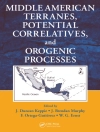This book investigates the role of land titling in delivering sustainable means of poverty alleviation in developing countries. Despite the huge amount spent on various anti-poverty programs annually, poverty remains a major problem. This persistent challenge necessitates a paradigm shift in which urban poverty could be alleviated in developing countries by leveraging the potential of land titling. Titling could provide the urban poor with the opportunity to use their property titles as collateral for loans, allowing individuals to invest in businesses, upgrade their homes, and lift themselves out of poverty. As a result, job creation and income generation may increase. Land titling is a simple, inexpensive, and effective means of supporting the urban poor, particularly those with small- and medium-sized enterprise (SME) initiatives. Similarly, land titling is an antidote to the limited success of property taxation in developing countries, as it provides mapped and transaction-based records. This book will help stakeholders, policymakers, and policy implementers understand and utilize the capacity of titling as a veritable means of poverty alleviation and SME development in developing nations.
Содержание
General introduction.- Navigating the dimensions of poverty from global goals to local realities.- Definition and importance of formal land titling.- Sub-Saharan Africa’s customary practices and land titling policy reforms.- Land titling and its effects.- Is land titling beneficial for active poverty reduction?- Overcoming constraints and empowering small and medium-sized enterprises through land titling.- Summary and policy implications.












